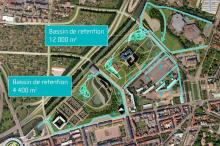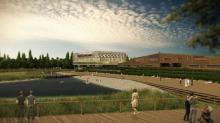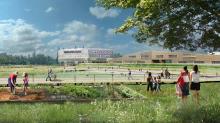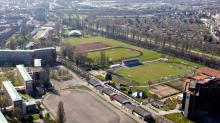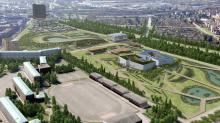Quality of life of public spaces
Nature in the city
Alternative approaches to water management - Urban environmental services
Harnessing all of the potential of water
The urban development project aims to reinforce the resilience capacities of this zone subject to flooding and to contribute to the landscape and recreational aspect of the neighborhood.
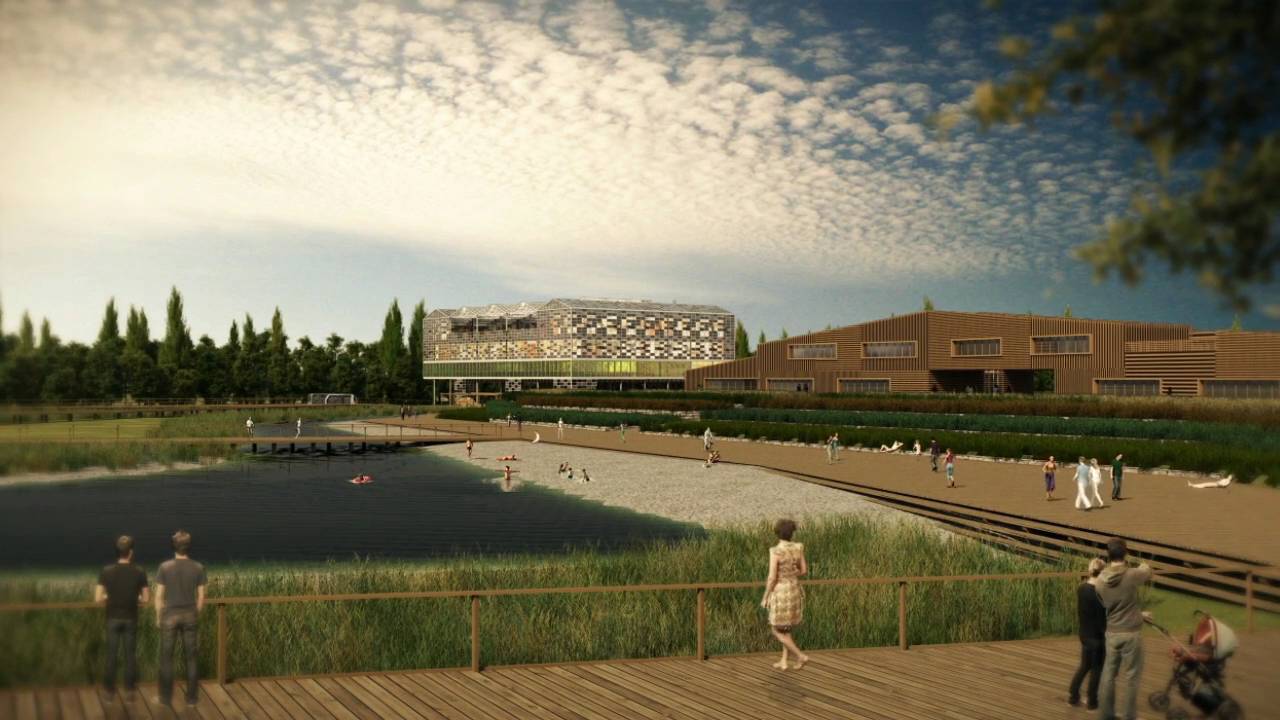
- Collecting and treating of rainwater and runoff water
On the scale of the Wacken neighborhood, the rainwater is first collected by a network of water meadows, then guided into the basins, of geometry that varies according to the intensity of the flooding.
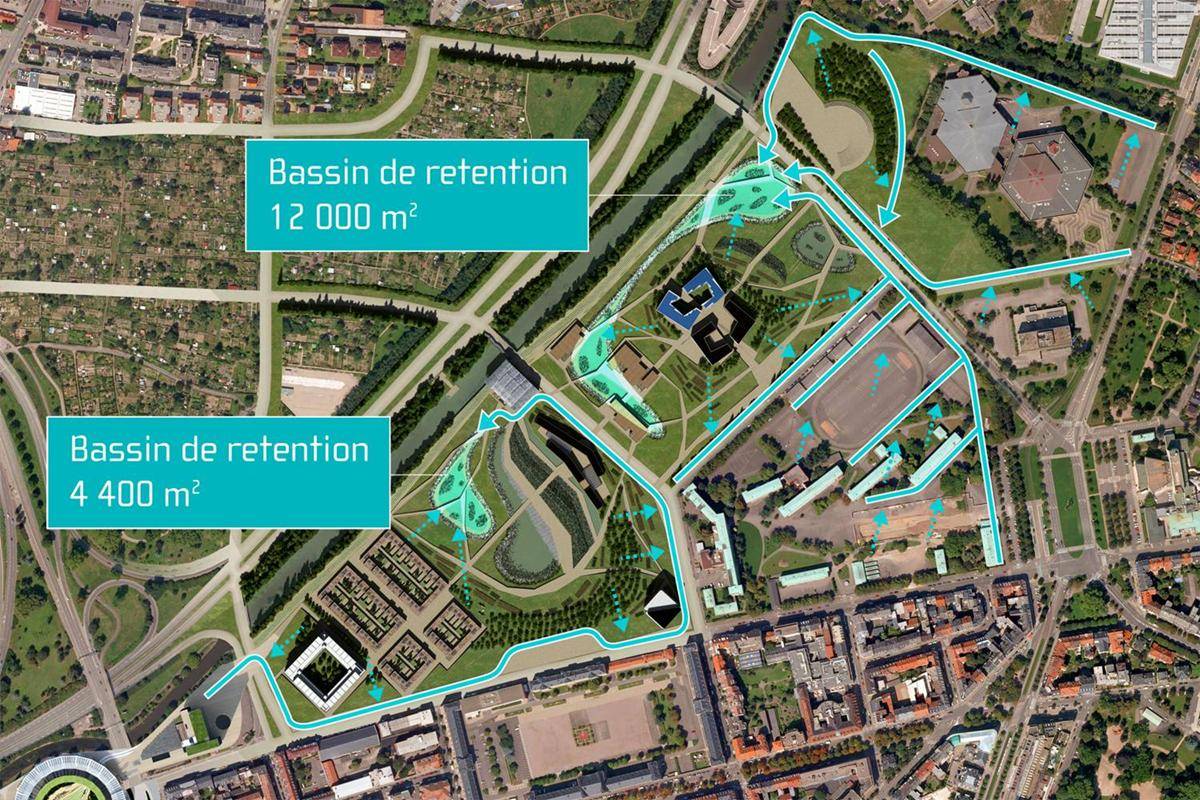
Runoff water is collected along roads and then treated by a biological process of phyto-filtration based on the purification capacity of plants.

- Design of a recreational and autonomous natural swimming pool
A natural swimming pool is supplied by water naturally purified by the phyto-remediating plants of filtration and regeneration basins. A shallow zone is available for safe swimming for families while swimmers benefit from a deeper area, equivalent to the size of an Olympic swimming pool.
.jpg)
Going from ornamental nature to useful nature
Beyond the esthetic and landscaping considerations, biodiversity and natural environments contribute to the quality of life in urban areas. Food, water purification, cleaning of the air and the tempering of the climate are all ecological services provided to city dwellers.
The Phosphore teams wanted to restore nature in cities to its rightful place by harnessing the riches of the Strasbourg area.
- Relocalizing some of the food production
In addition to the family gardens located on the periphery of the Strasbourg city center, new vegetable gardens and shared orchards contribute to the production of local fruits and vegetables, which are authorized to supply the produce market of the Wacken neighborhood. This food procurement system with a short loop and low carbon footprint encourages cooperation and enhances the vitality of neighborhoods.
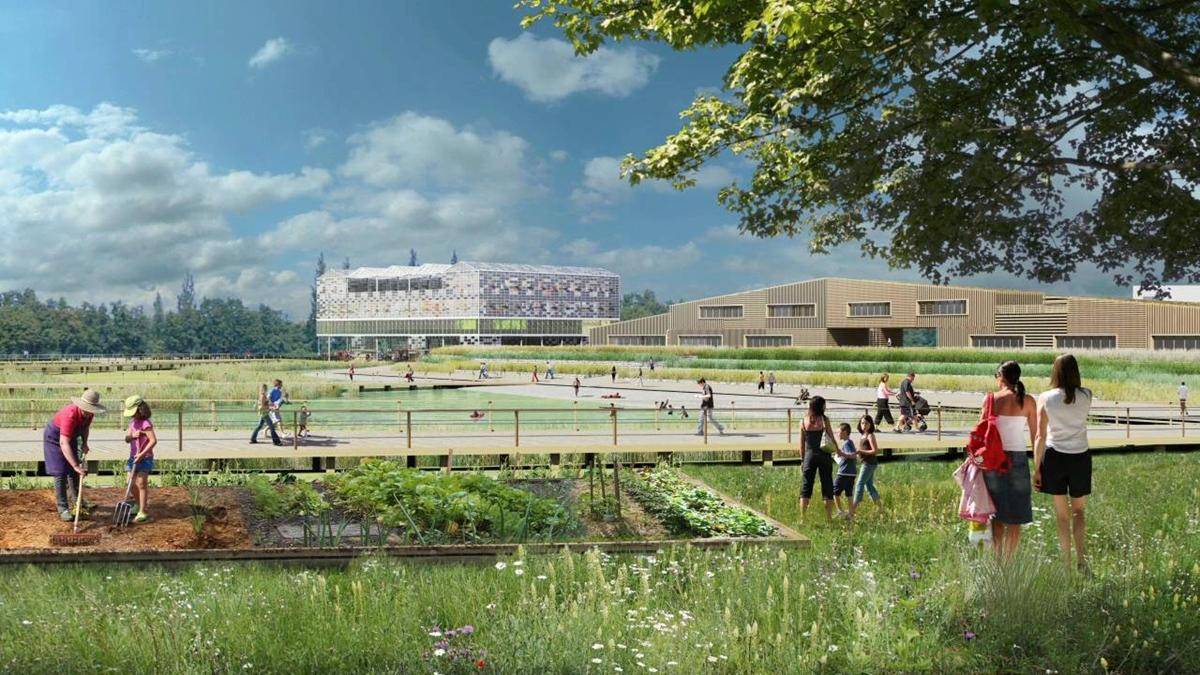
- Contributing to urban biodiversity
Grass lawns are abandoned in favor of honey-plant prairies while the vegetation of façades and roofs uses only local species. These developments temper the exterior and interior environment and contribute to the continuity of the green open systems, which encourage the development and mixing of a local biodiversity adapted to the urban environment.
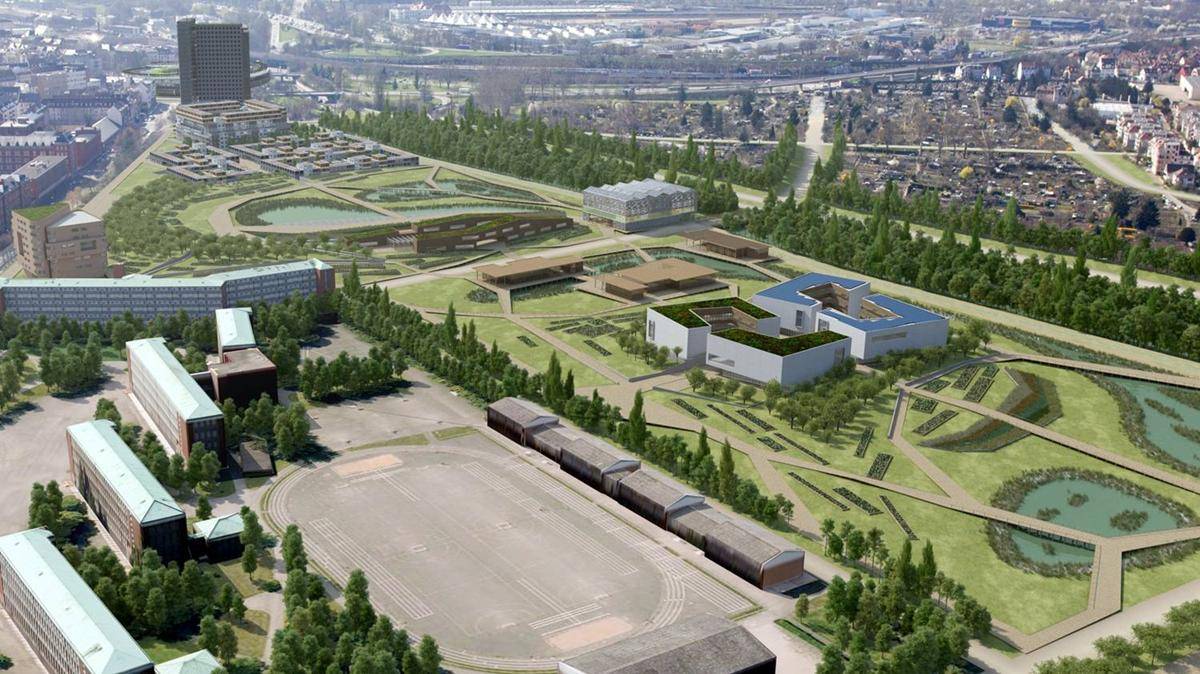


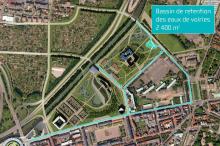
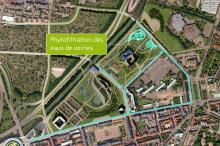
.jpg?t=thumbnail220)
